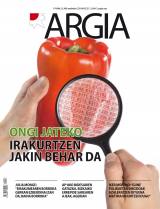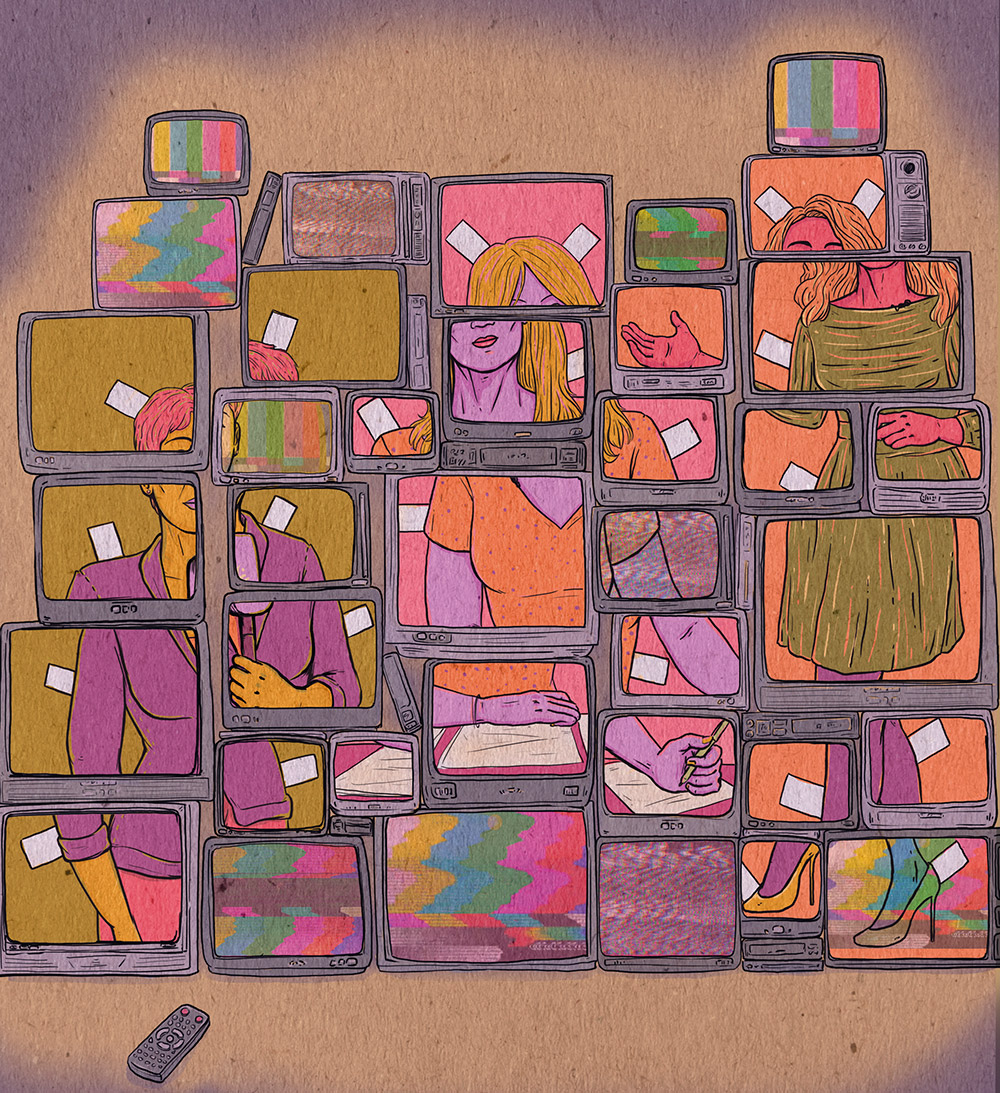Deluding sexism through the game
- Bizentaren Lumak is a game of words created by the Elhuyar Foundation to discuss gender and parity. The game aims to encourage young people, and not so young people, to reflect and engage on the subject.

Josu, 14 years old: “I have my head turned upside down. I don't stand with my family. Why have these parents touched me? Friends are the most important thing for me, but they also criticize me right away. I don't like kids' sports. Am I too fat? I feel more comfortable with girls, but I'm none of them. Will I be homosexual? That's what the others say, 'out of the closet, at once!'.
We present stories of 27 characters living in diverse situations in which participants will have to relate them to concepts such as sexism, gender identities, Queer theory, heteronorma, romantic love, androcentrism, etc.
The authors have honoured Bizenta Mogel, one of the first Basque writers, with the name of the game: “While we were on another project, we found some writings in Bizenta Mogel. He asked, “What do I do with the feathers of another, making life as a writer?” because he was aware that that activity was not the activity that belonged to a woman,” explains the project manager Naiara Arri.
Although Mogel had already done so in the 19th century, it is clear that even today there is a need for reflection and debate on gender and parity. To that end they have created Bizentaren Lumak.
Responding to the lack of tools
Elhuyar started the project due to the lack of material to work on the issue of equality with young people and in Euskera. They've been creating the game for about a year, but the idea came from before, according to Aizpea Otaegi, general coordinator of Elhuyar Aholkularitza: “We needed economic support to get the idea through, and the support of the Provincial Council of Gipuzkoa was a boost to that.”
Other works have also selected the Play&Decide methodology that has been used for this game: the model is based on facilitating reflection, argumentation and debate on concrete themes in groups.
The stories that we're presented with playing Bizentaren Lumak can feel close to anyone. For Otaegi, stories are “excuses” after all: in general, a tool to talk about issues that we do not give them a place in our daily lives. Participants should relate story card experiences with information card concepts and can use discussion topics to enrich the conversation. For example, Theme 3, The role of men in equality: “It is to discriminate against the encounter and organization of women without men. Men have an obligation to participate in these movements and policies.”
Matters which may be the subject of long-term delivery.
“Stories are directly related to our lives”
Since the word game was pulled out, Elhuyar has conducted several trials in different places. One of them was carried out with students from the Mondragon Unibertsitatea School of Business, within the framework of the Emakunde Equality Forum.
The students were divided into groups of 6 to 7 people and in each group there was a dynamism. These were also students, as the presence of the participants in their natural space greatly enriches the debate, according to Arri: “With the presence of facilitators coming from outside, there is often a risk of repeating the politically correct.” The dynamizers work with Elhuyar before the session, and Arri has explained that they also live “a significant empowerment process.”
The game started. In the first few minutes there was some tension between the participants, the atmosphere was quite quiet and it took them to take the floor. Over time, however, the participants were liberated, reassured and, little by little, rumor spread in the room. In the groups they mixed smiles and some laughter, but in general the debate was taken seriously by the students.
Among the youth, phrases such as “a cousin of mine is in a similar case” or “what happened to a friend” were heard. After more than an hour of conversation, the students had time to share their thoughts and commitments with the other groups.
Naming the experiences
The game seemed “very interesting” to the young: “It is necessary to clarify concepts that even today many consider feminism as discrimination against men and not as a struggle for parity.” All emphasized that it was very enriching to name the experiences lived on many occasions and relate them to the concepts. Because they saw and learned that supposedly casual and punctual situations respond to an entire reality.
On the other hand, the dynamizers commented that many of the participants would share what they experienced in the game with others: “I’m sure a lot of people will comment on some of the ideas and debates they’ve had during the program,” they say. “The game has allowed us to analyze and be critical of the attitudes and behaviors we have in daily life,” the participants added.
At school, in leisure groups, in gaztetxes, in associations of fathers and mothers
Although this is a game aimed especially at young people, the public purpose can be any group over 14 years, according to the members of Elhuyar. Among the stories to choose are characters of different ages and situations, depending on the nature of the group, the level of choice and discussion varies: “Stories are designed for young people, but we have all been young or we have young people around us, and often the same happens for older people. Therefore, the material serves as a tool for all ages,” explains Otaegi.
Eta zuk, txikitxo, honetan [kirol zehatz batean] jokatzen duzu?”. Horixe galdetu zion irakasleak nazioarteko emakume jokalari bati, gizonez betetako entrenatzaileen formakuntza-saioan. Esaldiaren paternalismoaz mintza ninteke, edo maila hartako kirolari hori bere esparruan... [+]
Almost thirteen years ago, he published in this same magazine a column entitled "Sympathetic potatoes." And in a way, it may be his continuation that he has begun to write now: Sympathetic children. On this occasion, as stated in the previous title, you talk about the role of your... [+]






















